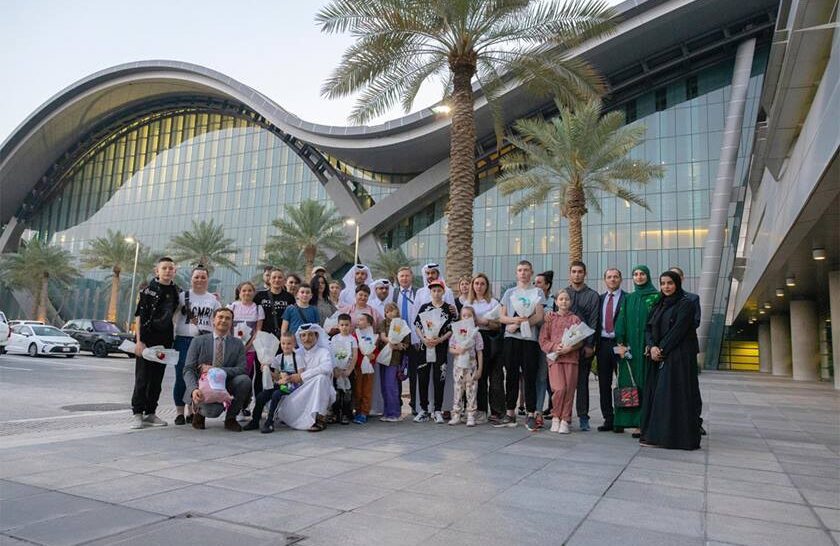Displaced Palestinians inspect their tents destroyed by Israel’s bombardment, adjunct to an UNRWA facility west of Rafah city, Gaza Strip, Tuesday, May 28, 2024.
Jehad Alshrafi/AP
hide caption
toggle caption
Jehad Alshrafi/AP
Israeli forces are pushing deeper into the southern Gaza city of Rafah, despite an order last week from the top U.N. court to halt its operation against Hamas there.
One witness told NPR that Israeli tanks had been spotted in western Rafah, on the opposite side of the city from where the offensive began on May 6. The Reuters news agency also reported that tanks had been seen in the center of the city, where some 1.4 million people had been sheltering before the offensive began, having fled there to escape fighting in the rest of the tiny coastal territory.
Israeli airstrikes have continued, NPR’s producer in Gaza reported, even after missiles aimed at Hamas militants ignited an inferno Sunday at an encampment for displaced Palestinians, which the residents had believed was a safe area. The Gaza Health Ministry said 45 people were killed in that attack. Israel’s Prime Minister Benjamin Netanyahu called the strike, which left another 200 people wounded, a “tragic mistake.”
It was the single deadliest attack on the city since Israel launched its offensive there against Hamas three weeks ago.
One Palestinian man in Rafah who witnessed the aftermath told NPR the scene was a charnel house, with one child decapitated and another eviscerated by shrapnel.
Israel’s military says it used precision munitions and hadn’t expected harm to civilians from the attack, which it said targeted two Hamas figures who oversee operations in the West Bank.
Sam Rose, director of planning for UNRWA, the U.N. agency tasked with caring for Palestinian refugees, said, “Regardless, when you attack a tented camp such as this, as we’ve said all along, there will inevitably be civilian casualties. It really does leave us numb and personally leaves me quite sick to the stomach.”
The health ministry in Gaza says the overall death toll has now surpassed 36,000 people in almost eight months since Hamas triggered the war with a surprise attack on southern Israel that killed around 1,200 people.
The International Court of Justice, the U.N.’s top court, last week ordered Israel to halt its offensive on Rafah. It lacks any powers to enforce such an order, however.
Humanitarian groups warn of a spiraling crisis in Gaza after the fighting in Rafah cut off the main aid routes into the territory, where aid warehouses have begun to run out of food.
And many hospitals are barely functioning, unable to run enough generators to keep their equipment running as the casualties mount.
On Monday, Gaza’s health ministry said two employees of the Kuwaiti Hospital in Rafah — one of the last hospitals functioning there — were killed at the gate of the facility by an Israeli airstrike. The hospital is closing down as a result.
And on Monday night, first responders in Rafah reported seven women and children were killed in another airstrike on a home in the city. There were more deadly airstrikes throughout Gaza.
The battle for Rafah is being fought on Gaza’s border with Egypt, and Cairo has warned that any spillover of the conflict onto its own territory could undermine its peace treaty with Israel — long a linchpin of stability in the region.
Tensions rose sharply this week when Israeli and Egyptian soldiers exchanged fire across the Rafah border for the first time since the start of the war. While the details of exactly how the exchange fire began remain unclear, at least one Egyptian soldier was killed.
President Biden had warned Israel against launching a major offensive into Rafah before the May 6 offensive, which came hours after Hamas fired rockets into the Kerem Shalom crossing point between Israel and Rafah, killing four Israeli soldiers.
Israel has said it is carrying out a “limited” operation against Hamas in Rafah.
An official in the Biden administration told NPR Tuesday that while the deadly airstrike in Rafah over the weekend left the U.S. “deeply concerned,” it was not an example of the kind of military operation that Biden has said would be unacceptable.
Aya Batrawy reported from Dubai. Kat Lonsdorf reported from Tel Aviv.




















Discussion about this post